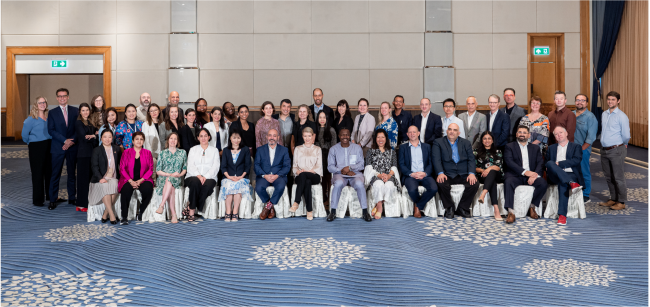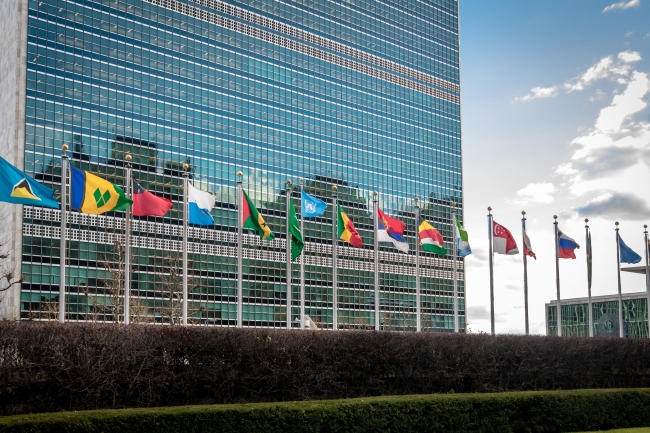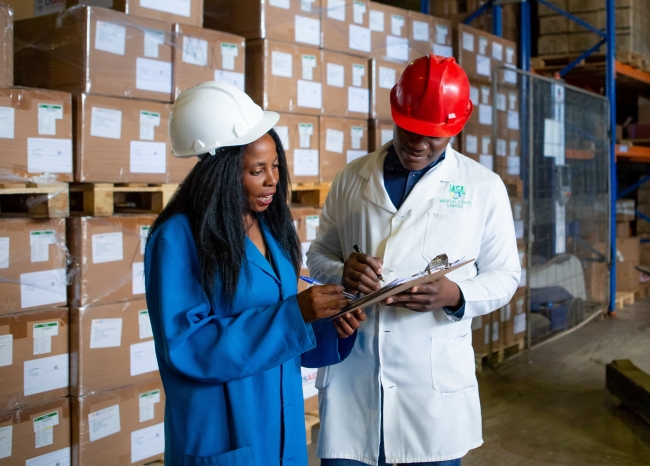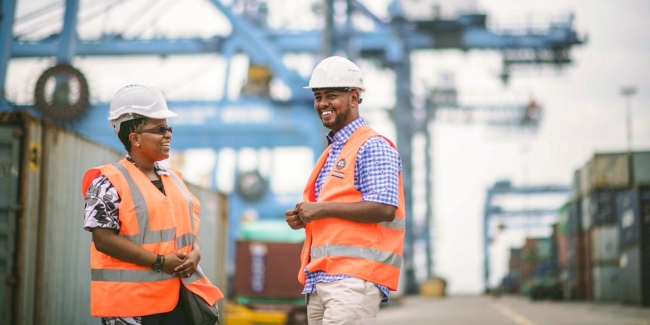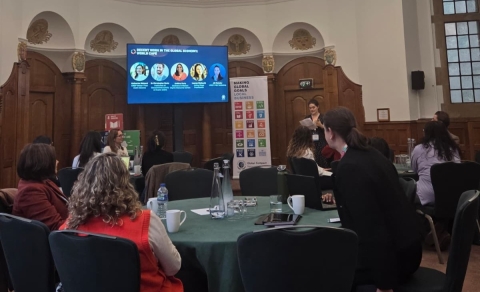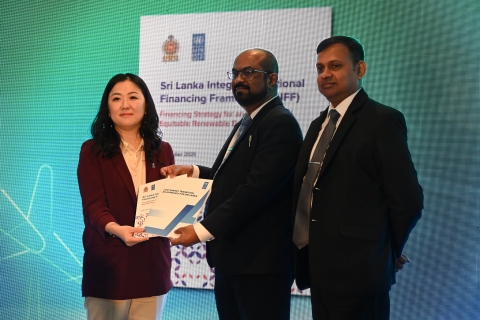Scaling up sustainable finance instruments: a focus on accessibility and affordability improvement
03 NOVEMBER, 2022

The sustainable finance market has grown rapidly over the past years, and both market participants and national authorities are increasingly recognizing the importance of sustainable finance instruments in conveying capital to address climate change and support other Sustainable Development Goals (SDGs).
Many firms and Small and Medium Size Enterprises (SMEs) continue to face important challenges in accessing the growing yet relatively small sustainable finance market. And even where these instruments are available and accessible, developing countries and SMEs are challenged with high financing costs. Looking into these gaps will be instrumental in achieving the Paris Agreement and 2030 Agenda goals.
Taking a step forward, the Sustainable Finance Working Group (SFWG) has included specific actions in the G20 Sustainable Finance Roadmap (the "Roadmap"), to promote the development of climate and sustainable-aligned financial instruments, blended financial instruments and mechanisms, engineering facilities products and markets, including sustainable capital market instruments. These will help eliminate barriers and bridge the gap in scaling up private sector sustainable investment. All year-long and particularly during its four trimestral meetings held in 2022, the SFWG identified barriers to scaling up sustainable finance, and developed a set of recommendations for jurisdictions to help improve access of corporates (including SMEs) to domestic and international sustainable finance markets, in an affordable way.
Barriers and challenges
The SFWG has identified generic financial markets and sustainable-finance-specific barriers to scaling up sustainable finance instruments. Generic barriers are foundational limits to the development and access to financial markets more broadly. Scaling up a financial market without indispensable market infrastructures (well-functioning banking system, efficient capital markets, sound development policies, and effective risk management instruments) is problematic and is intrinsically intertwined with sustainable finance-specific barriers. such as the increasing severity, unpredictability, and frequency of risks in emerging markets (conflicts, droughts, earthquakes, as well as epidemics and disease outbreaks). Other sustainable finance-specific barriers include inadequate awareness and expertise, as in many countries, regulators, financiers, and corporates do not yet or do not sufficiently incorporate sustainability into their decision-making or lack the technical and financial expertise to access and use available sustainable finance instruments. A great number of these sustainability products and data are not yet available in traditional financial statements due to either the lack of local regulations on sustainability reporting, the high costs associated with producing such information, or both. Most firms in low-income countries and SMEs struggle to find sustainable finance instruments that apply to their primary industries. Many jurisdictions lack a clear approach, rules, and regulatory frameworks to improve risk management and align investment towards sustainable ends. On the other hand, the current supply of international technical assistance, de-risking facilities, and other blended finance instruments only covers a fraction of the demand in low-income countries and therefore needs to be improved and increased.
To address key barriers to scaling up sustainable finance instruments, the SFWG reviewed some emerging options like capacity building, de-risking facilities, policy incentives, deploying digital technologies, and sustainable supply chain financing.
Enhancing capacity building on sustainable finance for FIs and SMEs includes awareness raising on risks and opportunities associated with climate change, and other sustainability factors; policymaking and implementation by government agencies on strategies and roadmaps for sustainable finance; development of alignment approaches, disclosure requirements and fit for purpose sustainable finance data ecosystems, and other SDG alignment tools; identification and management of environmental risks, as well as business and product development and project & key performance indicators (KPI) achievement evaluation by financial firms in support sustainable activities.
Scaling up blended finance and de-risking facilities was one of the key focuses of the G20 Development Working Group (DWG). Blending practices vary across institutions, including the use of concessional and non-concessional public finance from MDBs, other Development Finance Institutions (DFIs) and development aid programs, and to a lesser extent, donors and other third parties.
Introducing policy incentives such as carbon taxes, emission trading mechanisms, and fiscal subsidies for sustainable activities, is crucial, as well as developing and deploying digital technologies (like mobile payment systems).
Overall, it is essential to adopt sustainable supply chain financing (SSCF) that integrates ESG considerations into regular supply chain finance, using consistent methodologies and data to rank a supplier's sustainability performance and then providing preferential financing for suppliers with good sustainability performance.
Recommendations
Following the above issues and considering the emerging options, the Sustainable Finance Working Group (SFWG) recommendations are:
- Devote more resources and expertise to de-risk finance operations for sustainable activities in developing countries. Multilateral Development Banks (MDBs) should devote more resources, within their mandate and capital constraints, to support blended finance operations and technical assistance programs to help clients prepare bankable and sustainable projects and programs for developing countries. MDBs and DFIs should collaborate further to build relevant knowledge and understanding with respect to market structure, regulations, institutions and the local political economy dynamics within developing countries.
- Enhance and expand capacity-building services, including training of officials, regulators and financial sector professionals, to support the design of sustainable finance policies and roadmaps in developing countries, and enhance the capacities of local FIs.
- Explore alternative sustainable finance mechanisms, where MDBs and other IFIs can serve as corner-stone investors for sustainable or transition projects and organize demonstration projects in developing countries to support the generation of an investible SDG- or Paris-aligned pipeline.
- Help the ISSB to better support developing countries and SMEs, by developing best practices to lower the cost of disclosing and accessing sustainability data.
- Introduce policy incentives to scale-up sustainable finance instruments like government subsidies for green loan and green bond verification, correcting market signals with environmentally-related taxes and other price-based instruments, interest subsidies for green projects, fiscal incentives for green bonds and central bank actions– within their mandates - that could increase the demand for sustainable financial assets.
- Deploy digital technologies to reduce the costs of sustainable finance operations. MDBs, technical assistance providers, and relevant international organizations and networks should devote more resources to assist and provide capacity building for developing countries to adopt and deploy such technologies.
- Develop sustainable financial products suitable for use by SMEs, and incentivize their uptake, such as in the case of SSCF. Country circumstances and realities should be considered when adopting Sustainable Supply Chain Financing (SSCF) is an approach to help solve both issues. Governments should encourage or provide incentives to firms to adopt Sustainable Supply Chain Financing (SSCF) and other innovative sustainable finance products and services for SMEs.
- Support SMEs and local FIs to develop their awareness and capacity in addressing climate change to reduce its impact. Larger local FIs’ connection with wide-ranging SMEs could be an important channel to overcome SMEs’ inability in accessing valuable information and capacity to tackle climate change. The FIs could provide valuable advice based on rich information on SMEs’ business strategies and challenges they face
The COVID-19 pandemic and its impact on the global economy and sustainable finance has strengthened the commitment of G20 members, IOs, MDBs, market participants, and other stakeholders to set initiatives and pave the way for the development and improvement of global sustainable markets. The G20 sustainable report pinpoints relevant issues and barriers that need to be addressed and suggests a number of recommendations to scale up sustainable finance instruments and solutions specific to sustainable finance. SMEs and developing countries greatly affected and concerned by this situation will benefit from these solutions and recommendations to bridge the gap with their realities, policies and financial instruments.
Read the full report summarizing the work of the Sustainable Finance Working Group (SFWG) in 2022 and discover more details about each principle.

